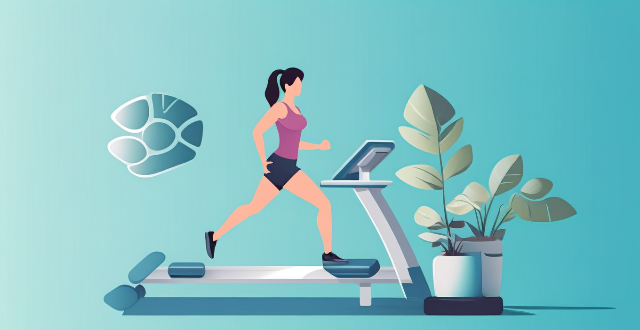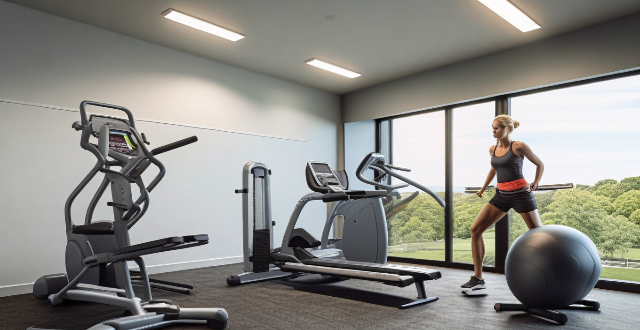Bed Insomnia

Can regular exercise help with insomnia ?
Insomnia, a sleep disorder making it hard to fall or stay asleep, affects many. Regular exercise is emerging as a natural remedy for insomnia. Exercise can positively impact sleep quality and duration by regulating the circadian rhythm and releasing endorphins. It also reduces stress and anxiety, leading causes of insomnia. Regular exercise boosts energy levels and mental health, further promoting better sleep. The recommended amount is 150 minutes of moderate-intensity activity weekly, including muscle-strengthening exercises. Tips for exercising with insomnia include choosing low-impact activities, avoiding high-intensity workouts at night, establishing a routine, being mindful of caffeine intake, and consulting a doctor before starting an exercise program.

Is there a recommended amount of time to spend in bed for optimal rest ?
This text discusses the recommended amount of time to spend in bed for optimal rest. It emphasizes the importance of sleep for overall well-being and suggests aiming for 7-9 hours of sleep per night, with individual needs varying. The quality of sleep is also crucial, and good sleep habits can improve it. Chronic sleep deprivation can have serious consequences, so prioritizing sleep is essential for long-term health and happiness.

How does sleep deprivation affect muscle recovery after workouts ?
Sleep is crucial for muscle recovery after workouts, as it allows the body to repair and rebuild damaged muscle tissue. Sleep deprivation reduces growth hormone production and protein synthesis, leading to inefficient muscle recovery. Strategies for improving sleep quality include establishing a consistent sleep schedule, creating a relaxing bedtime routine, avoiding screens before bed, getting plenty of exercise, and creating a comfortable sleeping environment. By prioritizing sleep, you can improve muscle recovery and overall health.

Is there a specific diet that can help with better sleep ?
Diet plays a crucial role in sleep patterns, with certain foods promoting relaxation and others disrupting sleep. The best foods for better sleep include turkey, milk, bananas, almonds, and chamomile tea, while caffeine, alcohol, spicy foods, sugary snacks, and heavy meals should be avoided before bedtime. Incorporating these dietary changes can help improve the quality of sleep and overall well-being.

How does shift work impact sleep patterns, and what can be done about it ?
Shift work can significantly disrupt sleep patterns due to conflicts with the natural circadian rhythm. Strategies for managing sleep disruptions include maintaining a consistent sleep schedule, creating a sleep-friendly environment, avoiding stimulants before bedtime, getting adequate exercise, and seeking professional help if needed.

Can excessive exercise lead to sleep disorders ?
Overtraining can cause sleep disorders by disrupting normal sleep patterns and causing physical stress and fatigue. Relaxation techniques such as meditation, yoga, or deep breathing exercises can help calm your mind and body before bed. Adjusting your exercise routine and creating a consistent sleep schedule can also improve sleep quality. If you continue to experience sleep disturbances, consult with a healthcare professional for further evaluation and treatment.

How can we deal with jet lag during an international family trip ?
Jet lag, also known as desynchronosis or flight fatigue, is a physiological condition which can cause various issues such as insomnia, irritability, and difficulty concentrating. It occurs when our body clock gets disrupted due to rapid travel across time zones. Here are some tips on how to deal with jet lag during an international family trip: 1. Adjust Your Sleep Schedule Before Departure: Before embarking on your journey, try to gradually adjust your sleep schedule to match the time zone of your destination. 2. Stay Hydrated and Avoid Alcohol and Caffeine: Dehydration can exacerbate jet lag symptoms, so it's important to drink plenty of water while flying. Avoid alcohol and caffeine as they can further dehydrate you. 3. Get Some Sunlight: Expose yourself to sunlight as soon as possible after arrival. Natural light helps regulate our body's internal clock and can help you adjust to the new time zone more quickly. 4. Take Short Naps: If you feel tired upon arrival, take a short nap (no more than 20-30 minutes) to recharge yourself without disrupting your nighttime sleep schedule. 5. Stay Active During Daytime: Engage in physical activities during the daytime at your destination to help keep you awake and alert. This will also help you fall asleep more easily at night. 6. Use Melatonin Supplements: Melatonin supplements can help regulate sleep patterns by mimicking the effects of natural melatonin production in the body. Consult with a healthcare professional before taking any supplements. 7. Consider Using Light Therapy Devices: Light therapy devices emit bright light that mimics sunlight and can help reset your body's internal clock. These devices are available for purchase online or at specialty stores. 8. Be Patient: It takes time for your body to fully adjust to a new time zone, so be patient with yourself and give your body the rest it needs to recover from jet lag.

How much exercise is needed to improve sleep ?
The text discusses the importance of regular physical activity in improving sleep quality. It highlights how exercise can lead to better sleep patterns, faster sleep onset, deeper sleep, and improved sleep efficiency. The amount of exercise needed varies depending on individual factors, but general guidelines suggest at least 150 minutes of moderate-intensity aerobic exercise per week. Even small amounts of physical activity can have positive effects on sleep. Various types of exercise, including aerobic exercises, resistance training, yoga, and Pilates, can contribute to improved sleep quality. Timing your exercise sessions appropriately is crucial for maximizing their benefits for sleep improvement. Consistency is key when it comes to reaping the benefits of exercise on sleep quality.

How do wearable technology devices aid in tracking and managing health through exercise ?
Wearable technology devices play a significant role in tracking and managing health through exercise. They monitor various aspects of physical activity, such as heart rate, steps taken, calories burned, and sleep patterns, providing valuable data for making informed decisions about fitness routines and overall health. Features like goal setting and progress tracking can motivate individuals to stick with their exercise routines and achieve their fitness goals more effectively.

Are there any natural remedies to improve sleep ?
This article discusses natural remedies that can help improve sleep, such as chamomile tea, lavender oil, valerian root, magnesium, exercise, meditation and yoga, and maintaining a consistent sleep schedule. These remedies can promote relaxation, reduce anxiety, regulate the body's internal clock, and improve the quality of sleep. Incorporating these remedies into your daily routine can help you enjoy the benefits of feeling well-rested.

What are the psychological benefits of exercise for the elderly ?
Exercise for the elderly has several psychological benefits, includingExercise for the elderly has several psychological benefits, including symptoms, enhanced cognitive function, including mood improvement, reduced depression symptoms, enhanced cognitive function, increased social interaction, and better sleep quality. Regular physical activity boosts endorphins, reduces anxiety and stress, improves brain health, delays age-related cognitive decline, promotes community engagement, increases independence, and regulates sleep patterns. These benefits contribute to better mental health and well-being in older adults.